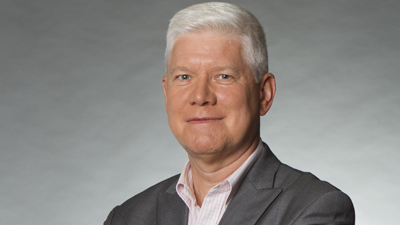The Agora Institute had the honor of hosting Dr. John Haldane, one of the most highly recognized philosophers of our time, on April 4. Haldane is currently a visiting professor at Baylor University in Waco, Texas, while he continues to teach select courses at the University of St. Andrews in Scotland. His lecture, entitled “Understanding and Dealing with Societal Conflict,” was insightful and contained a depth that will keep all who attended thinking for many days to come.
He started the talk by introducing the idea that we often like to diagnose the disease of our culture before we ask what is good and right about it. Perhaps this is a backwards way of understanding society, Haldane suggested. He then went on to argue that all ideas are not born in a vacuum, as the notion that “ideas have consequences” might suggest. Though, he claimed, ideas surely have consequences, they are better understood as products of many historical factors that have preceded them—often, these historical factors are practical solutions that might even have little to do with philosophical theory. Philosophy, or the ideas, really only understand phenomena once they are what he called “fossils.” He quoted Hegel here, saying, “When philosophy with its abstractions paints gray in gray, the freshness and life of youth has gone, [and] the reconciliation is not a reconciliation in the actual, but in the ideal world.” Philosophy seeks to understand minute distinctions, the kind that a painter might create by painting with variations of the color grey—from far away, the painting just looks grey; it is only upon closer inspection that the reality of the distinctions becomes clear. In the same way, historical and social phenomena can often only be understood in retrospect. Along this vein, ideas can help us keep track of the course of history, as they are products of what humans do and create.
Haldane then spent the majority of the time critiquing the way modern dialogue occurs. He said we seek to find deductive conclusions (true premises lead to undeniably true conclusions), such that one’s interlocutor, if he or she were not to agree with you, must be either pathetically stupid or maliciously willing to misunderstand. Therefore, he urged the audience to understand that dialogue cannot work like this. We must listen for the sake of understanding, keeping in mind the idea that situations are always more nuanced and complicated than we might have assumed. We must understand that more often than not, both sides of, primarily, social issues have reasonable arguments for believing what they do. This does not mean that we stop holding our own views, for saying an argument is reasonable is not the same as saying it is true.
He urged us to imagine the way our conversations would change if we stopped treating “the other side,” whatever that may be for any given topic, as if they were stupid or evil, simply because they disagree. It is perceivable that a lot would change, relationships and societies alike. Haldane encouraged the audience that they cannot stop talking about difficult topics, but they need to be more intentional about the way they are talking.
Sources: John Haldane, Georg Wilhelm Friedrich Hegel

